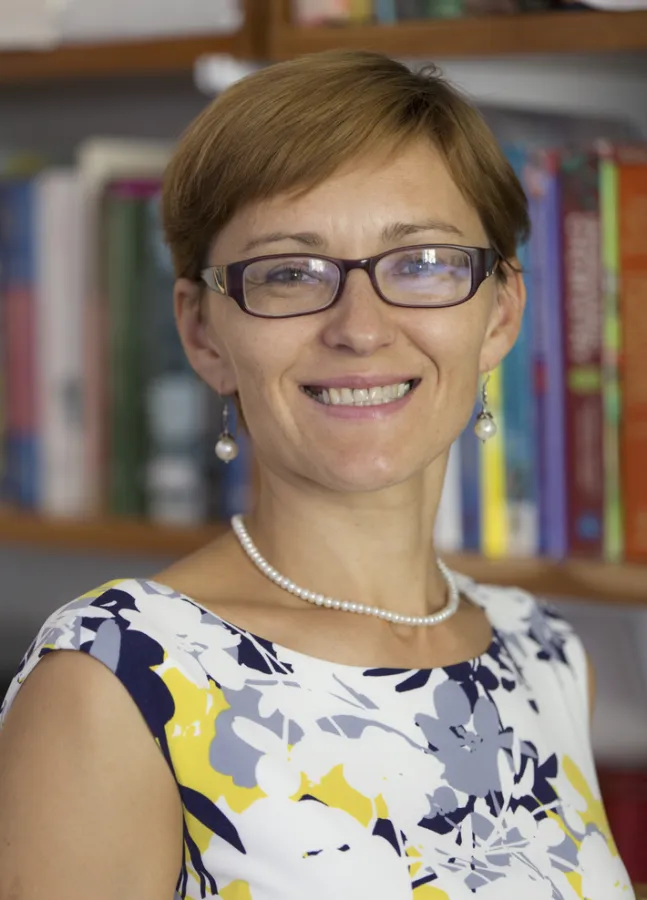Chemistry Professor Liliya Yatsunyk Receives Henry Dreyfus Teacher-Scholar Award

Associate Professor of Chemistry Liliya Yatsunyk is the recipient of a 2016 Henry Dreyfus Teacher-Scholar Award. The award, given by the Camille and Henry Dreyfus Foundation, recognizes undergraduate faculty in the chemical sciences who have distinguished themselves in both research and education. Award recipients are given an unrestricted $60,000 grant for their research.
Yatsunyk joined the faculty of Swarthmore’s chemistry department in 2007 and currently teaches inorganic chemistry and instructs two introductory chemistry labs. Her research focuses on design and synthesis of telomerase-inhibiting antitumor drugs. She has supervised 28 Swarthmore students in her lab, nine of which are current students from three different class years. This summer, Yatsunyk and four of her students traveled to Louisville, Ky., to visit and present their research results at the James Graham Brown Cancer Center.
“The right balance of teaching and research is what brought me to Swarthmore and is essential to my career goals,” says Yatsunyk. “I am happy and proud of being a recipient of this award, which will allow my laboratory to continue and expand our research program and will allow my students to enrich their Swarthmore education.”
Yatsunyk received her Ph.D. in chemistry from the University of Arizona and completed her postdoctoral fellowship at Northwestern University. She is a member of Sigma Xi, the American Chemical Society, and the Society of Porphyrins and Phthalocyanines, and is a reviewer for many scientific journals. She has been a contributor to 38 scientific articles.
Five other Swarthmore faculty members have received the Henry Dreyfus Teacher-Scholar award, most recently chemistry and biochemistry professors Stephen Miller (2011), Kathleen Howard (2005), and Paul Rablen (2003).
Mark Cardillo, executive director of the Camille and Henry Dreyfus Foundation, says that “research support at undergraduate institutions is very important,” citing the fact that a large proportion of doctorate holders in chemistry received their bachelor’s degree from an undergraduate institution. He also states that “research is a fundamental part of chemistry education.”
The foundation, established in 1946, is devoted to "[advancing] the science of chemistry, chemical engineering and related sciences as a means of improving human relations and circumstances throughout the world." It funds a variety of awards dedicated to supporting chemistry education, particularly in undergraduate institutions such as Swarthmore.



